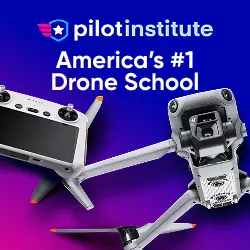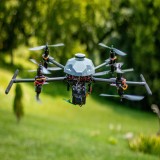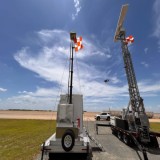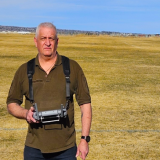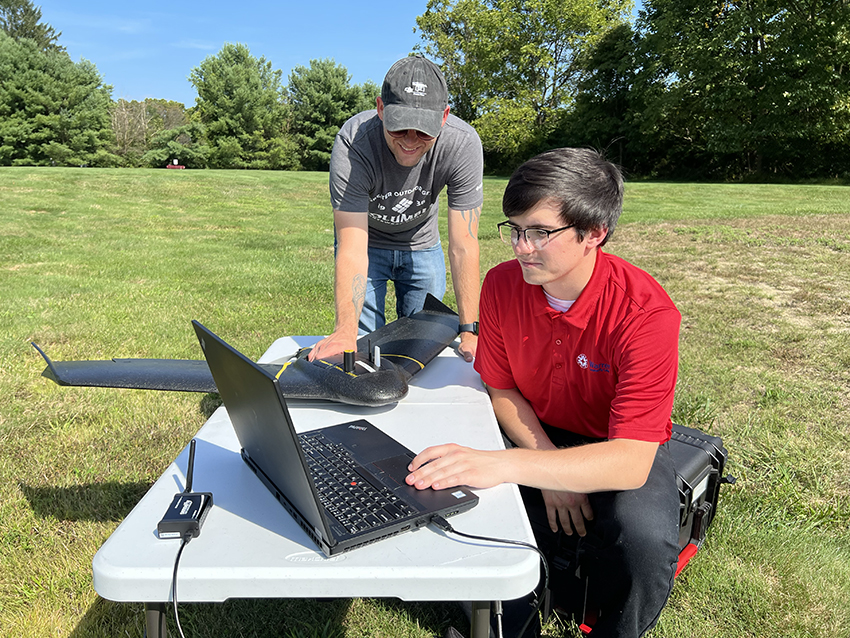
13 May 2025
WarrenUAS, one of the leading collegiate sUAS (drone) training programs in the country, has registered another major win for their program with word this week that the Federal Aviation Administration has granted the WarrenUAS program permission to operate larger (above 55 pounds) UAS in the National Airspace, as well as the ability to train students operators to fly such aircraft. The large majority of exemptions issued for 55 pound and heavier aircraft have limitations on providing training.
Currently, it is one of only five organizations to have such clearance.
The Section 44807 exemption adds to a string of recent developments at WarrenUAS, including additions of new facilities, additional technology, and the hiring of instructors and advisers with industry-leading experience in the most sophisticated UAS operations for the agriculture, government, and infrastructure sectors.
Just as notably, the college has obtained Part 107 waivers for use by its students with real-world flight experience by being among the first group of institutions in the country to have FAA approval to fly drones over populated areas and beyond the visual line of sight of the operator under a Part 107 waiver.
“This is another huge step for WarrenUAS and moves our program into an elite group of institutions to have the legal clearance to fly these complex systems,” said Will Austin, president of Warren County Community College, the home of WarrenUAS, which has been a priority for Austin. “Like us, the FAA is extremely cautious about the circumstances under which it allows drones to be operated, so we are honored that they have given us authorization to properly train the new generation of professionals to work safely in this sector of the industry.”
Nathan Ernst, president and founder of The Tactien Group, which recently began collaborating with WarrenUAS on training structures for the operation of larger and more sophisticated systems, called the exemption a “remarkable achievement”.
“Our firm specializes in the operational oversight of these larger UAS, and as the industry begins to increase the utilization of these systems, the need for properly trained professionals become more and more critical,” Ernst said. “Having this authorization for a higher education institution is a ground-breaking step in the right direction – and WarrenUAS is a great place for it to be based.”
Jonathan Rupprecht, a drone attorney and flight instructor specializing in FAA regulatory issues, played a key role in the multi-year process of gaining the exemption based upon his over a decade of legal experience in obtaining hundreds and hundreds of exemptions for drone operations.
“The college is positioning itself as being the preeminent educational institution to provide training on how to fly unmanned aircraft. The college has carefully laid the groundwork to assemble the right team of experts with the goal of providing expert training in these sophisticated systems.”
Section 44807 is a part of the United States Code that defines the operation limitations of UAS above 55 pounds. Under a very strict set of circumstances, the FAA will grant relief (exemptions) from some of those limitations, provided the applicant can demonstrate the appropriate level of competency and has the correct level of procedures in place. Upon review of WarrenUAS’ submission, the FAA decided to grant such exemption to portions of section 44807 allowing the organization to expand training capabilities into the realm of larger UAS.
“Each step in the advancement of the WarrenUAS program through these FAA certifications/authorizations has been rigorous and challenging – for good reason,” Austin said. “When it comes to safely flying unmanned systems, we take our responsibility very seriously and demand our students share in these safety philosophies while they gain practical experience in an environment with the highest standards. That is what the FAA expects.”
WarrenUAS, which began with a handful of students and a dozen drone systems, has expanded to accept next fall more than 100 students to be trained in the design, maintenance and safe, regulated flight of unmanned systems. They’ll have access to more than 100 drone systems worth more than $5 million and gain experience and classroom training through two new fully equipped facilities for the program, led by some of the top experts in the field.
“We began the program because we saw the need for trained professionals in this field and recognize the many ways these skills could be used on farms, for utilities, by law enforcement and in all types of research related to the environment and wildlife. At the same time, there was a lot of interest by students who understood that they could have really satisfying, high-paying careers in this field,” Austin said.
Agriculture has been a priority for Austin personally and the program, with development of a precision agriculture program to train students in the growing uses of drones and robotics to make farms more efficient and sustainable. But students have also had opportunities to work on real-life circumstances where drones are used in law enforcement, environmental studies, infrastructure inspection, and land use research.
The program recently added to its deep ties in the unmanned aircraft systems industry through a collaborative agreement with the The Tactien Group LLC, a leading aviation strategic advisory firm guiding clients worldwide. The agreement with Tactien comes as Warren also has brought on Ed Celiano, one of the nation’s leading experts in large-scale, complex UAS, and the past executive director of the New Jersey Unmanned Aviation Systems Test Site.
Both Ernst and Celiano are experts in the type of equipment the new exemption allows Warren UAS to operate, train, and prepare a workforce to serve the growing UAS industry. In addition, WarrenUAS was the first community college in the US to be certified as an AUVSI Trusted Operator training provider, and students still have the option of gaining that professional certification among others as part of their degree program or through their non-credit certification process.
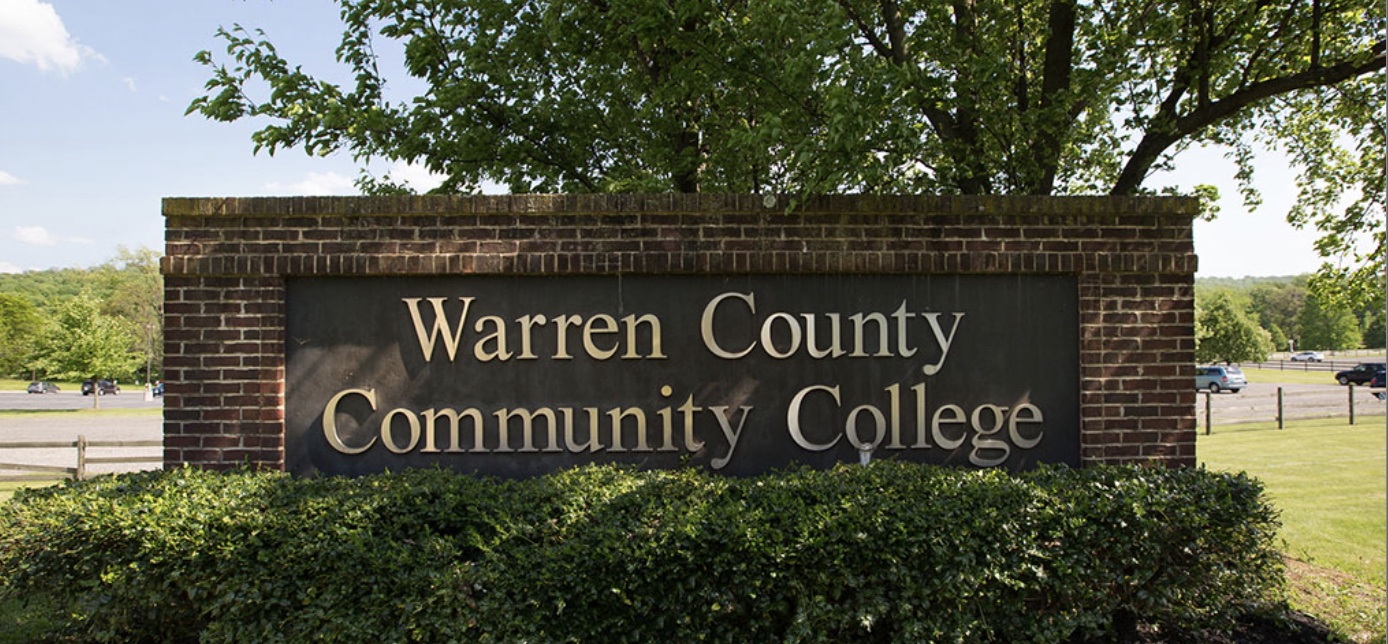
Starting this fall, graduates of Warren Community College can experience seamless transfer to Embry Riddle Aeronautical University as part of another dynamic partnership which allows faculty and students at both institutions to train together. “The goal is always to partner with the best aviators in the UAS industry to provide students with the training and education they need to be safe, while providing employers with the professionals they need to remain competitive in the marketplace,” Austin said.
Beyond that, just last week, two of the most widely respected higher education institutions in the country recognized Warren County Community College for providing access and support to its students and assuring they are successful after they graduate. Warren was one of just about 400 community colleges in the nation named by the Carnegie Foundation and the American Council on Education (ACE) in its prestigious Student Access and Earnings Classification process, and among only about 200 who received “high” rating for access.
Austin believes that along with training students in safe operation of sophisticated equipment, WarrenUAS provides access to the exciting field of unmanned systems for dedicated, serious students at a low cost. Sixty credit transferable accredited degrees can be achieved for about $10,000 in total, and textbooks never cost more than $200 a year due to other significant partnerships that have been realized during Austin’s 20+ year career as president.

